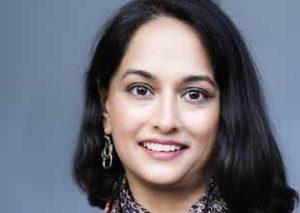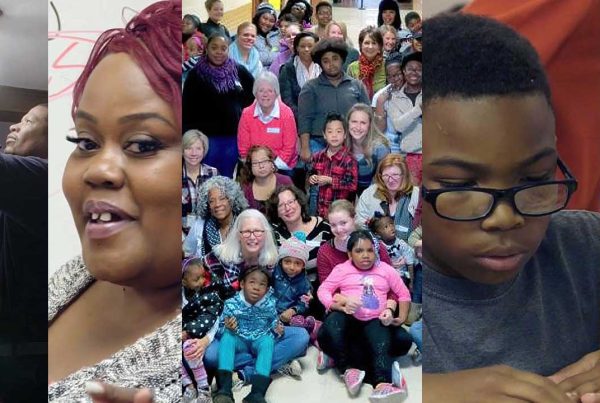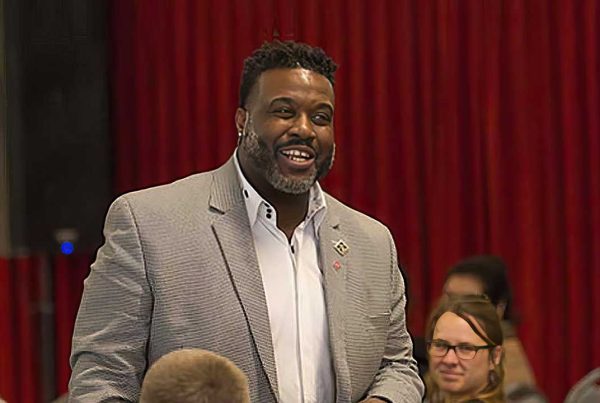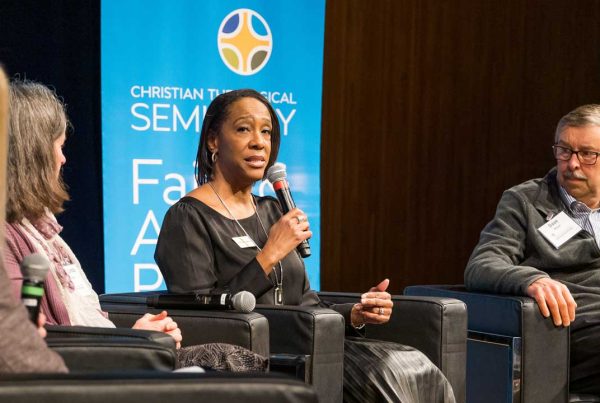Solutions Grounded in the Lived Experience
One of the greatest challenges in fighting poverty is pushing beyond urgent needs in order to examine the root causes of poverty. But it must be done. As Desmond Tutu famously said, “There comes a point where we need to stop just pulling people out of the river. We need to go upstream and find out why they’re falling in.” The question then becomes, how? How do faith communities and nonprofits build on their infrastructure for meeting immediate needs and transition to long-term solutions? To continue Desmond Tutu’s metaphor, one key is to spend time with those people who have spent time in the river – to listen to their stories, and learn about, as the former archbishop said, why they fell in. Because if we don’t hear from the people who have lived experience with poverty, we will forever be working from under-informed impressions that – no matter how well-meaning they might be – will never accurately portray the complex factors and varied stories that lie behind poverty. As Andrew Green of the Shepherd Community Center says, “We must look at needs and assets in all areas of a person’s life in order to support them in a long-term effort of breaking that cycle.” As we listen, we must seek to understand the barriers that block the path out of poverty, the forces that entangle them, the factors that weigh them down. We must honor their strengths and their weaknesses, acknowledge the challenges, personal and societal, that they face each day. We must accept the trauma that defines their lives and not expect them simply to overcome it by force of will and desire. And we have to accept that, as powerful as listening, truly listening can be, it is not enough to magically erase the root causes of poverty. In her book The Power of Proximity, author Michelle Ferrigno Warren notes that “listening to the stories and experiences shared by those facing poverty won’t solve immediate injustices around mass incarceration, housing discrimination, but seeing their pain helps us to understand the barriers and aspects of the broken system that we wouldn’t have seen otherwise.” As a community, we need to do a better job of bringing neighbors facing poverty to the table to explain what they believe blocks their opportunity to compete equitably in our society. We, who have assets and authority, need to stop assuming those who have neither assets nor authority will automatically buy into our suggestions. We must listen, hear, and understand the unspoken protest. We must learn what our poorest and most disconnected neighbors want, expect, and deserve. Only then can we work with them to remove barriers, strengthen assets, and clear the way to opportunities. Join us online on April 15 to dive deeper into this process, listening to a few neighbors’ experience with poverty, and celebrating where they are today and where they plan to go. Join us as fellow Hoosiers share key milestones from their journeys out of poverty. Join us as we seek not simply to pull people from the raging waters of poverty, but to work toward the day when no one falls in at all. Lindsey Nell Rabinowitch Director, Faith & Action Project
Register Now for Spring Conference
 Efforts to turn back poverty in our community will succeed only if we engage in a concerted, collaborative effort to listen, share, innovate and connect with experts and those who are walking the pathway out of poverty. Join us online on April 15 to be a part of that effort, as we welcome faith communities, nonprofit organizations, concerned individuals, and people living in poverty to gather virtually for the Faith & Action Spring Conference, sponsored by Lumina Foundation. National poverty-mitigation leader Nisha Patel, an advocate for “data-driven and heart-led” approaches to increasing mobility from poverty, will keynote the conference, which will include conversations with Faith & Action Grant recipients and local residents who have lived in poverty. Click here to register for the online conference.
Efforts to turn back poverty in our community will succeed only if we engage in a concerted, collaborative effort to listen, share, innovate and connect with experts and those who are walking the pathway out of poverty. Join us online on April 15 to be a part of that effort, as we welcome faith communities, nonprofit organizations, concerned individuals, and people living in poverty to gather virtually for the Faith & Action Spring Conference, sponsored by Lumina Foundation. National poverty-mitigation leader Nisha Patel, an advocate for “data-driven and heart-led” approaches to increasing mobility from poverty, will keynote the conference, which will include conversations with Faith & Action Grant recipients and local residents who have lived in poverty. Click here to register for the online conference.
Apply for a Faith & Action Grant
With the upcoming Faith & Action Spring Conference, the Faith & Action Project kicks off its annual grant program, which provides grants to initiatives that show success in breaking the cycle of poverty and moving families out of poverty for the long term. As you consider applying for a grant, we encourage faith communities, nonprofits, and agencies to forge collaborations that will address root causes of poverty in areas such as housing, employment, education, and health. To create the best applications, we encourage organizations to focus on approaches that are replicable and scale-able, aimed at measurable outcomes and built on partnerships and collaboration, and those that have a plan for ongoing sustainability. Click here to learn more.
Learn to Make the Most of Data
In preparation for the Faith & Action grant proposal, consider participating in the upcoming webinar “Using Data Effectively to Design Effective Solutions.” Sharon Kandris, with the Polis Center, will lead the group in a discussion on how to use data strategically to set measurable goals, while considering data in the context of a variety of factors, including barriers, opportunities, and resources. Save the date for April 6, 1:00 – 2:30 PM. More details to come.
Worth Reading
 “Tackling the legacy of persistent urban inequality and concentrated poverty,” Brookings. Black people are far more likely to be “stuck in place” than white people, resulting in “grinding, persistent poverty [that] damages children’s long-term outcomes,” according to a recent Brookings article. Addressing concentrated poverty will require changes to policy, say authors Stuart Butler and Jonathan Grabinsky, and public policy tools that strengthen communities, help residents move to better neighborhoods and ensure greater access to opportunities. The good is that such tools exist, the authors say, but they add: “What is lacking now is a much greater determination to use them.” (Marian University student Isabella Simmons considered the same challenge in Central Indiana in this article in the Indianapolis Recorder.)
“Tackling the legacy of persistent urban inequality and concentrated poverty,” Brookings. Black people are far more likely to be “stuck in place” than white people, resulting in “grinding, persistent poverty [that] damages children’s long-term outcomes,” according to a recent Brookings article. Addressing concentrated poverty will require changes to policy, say authors Stuart Butler and Jonathan Grabinsky, and public policy tools that strengthen communities, help residents move to better neighborhoods and ensure greater access to opportunities. The good is that such tools exist, the authors say, but they add: “What is lacking now is a much greater determination to use them.” (Marian University student Isabella Simmons considered the same challenge in Central Indiana in this article in the Indianapolis Recorder.)
Mark your calendar
April 6, 2021, 1 PM: “Using Data Effectively” webinar
April 15, 2021. 1 PM: Faith & Action Online Spring Conference
October 5, 2021, 7 PM: Faith & Action Fall Event






